PM suggests SC to send President’s immunity issue to Parliament
 Prime Minister Syed Yusuf Raza Gilani has suggested the Supreme Court that if it does propose to expose the incumbent President of Pakistan to prosecution before a Western Magistrate, the best recourse will be to send this issue of grave public concern to the Parliament to take a decision, like it had done wisely over articles concerning appointments in the higher judiciary in the 18th Amendment case.
Prime Minister Syed Yusuf Raza Gilani has suggested the Supreme Court that if it does propose to expose the incumbent President of Pakistan to prosecution before a Western Magistrate, the best recourse will be to send this issue of grave public concern to the Parliament to take a decision, like it had done wisely over articles concerning appointments in the higher judiciary in the 18th Amendment case.
The statement was submitted by Barrister Aitzaz Ahsan, counsel for the Prime Minister on his behalf, in a pending contempt issue to be taken up by a seven-member bench headed by Justice Nasir ul Mulk on March 21.
In his statement, the Prime Minister said that he had committed no contempt by not writing a letter to the Swiss authorities due to the constitutional immunity enjoyed by the President.
"I also believe that the sovereign state of Pakistan cannot, must not and should not offer its incumbent Head of State, symbol of Federation (Article 41), the most prominent component of Parliament (article 50), and the Supreme Commander of its Armed Forces (Article 243) for a criminal trial in the court of a foreign magistrate, during the term of his office," he maintained.
He said that any such attempt on his part would be liable to serious consequences being in humiliation of the constitutional symbol of the sovereignty and independence of the state to which he was under oath to uphold.
"This is also a principle of absolute and inviolable "Head of State Immunity" recognized in International Law and must also be respected and upheld by all our institutions, i.e. executive, legislature and judiciary," he added.
The Prime Minister said that neither he committed any contempt nor intended to commit it as he had acted strictly in accordance with the Rules of Business.
"To set aside a decision of an executive authority as being wrong, is one thing. To charge that authority of a criminal offence, is quite another," he added.
Referring to the latest directive of the Court on March 8, in which he was ordered to ignore all advices and act to implement paras 177 and 178 of the NRO judgement case, he contended that the advice was given in the past which was relevant with the present and future.
Giving reasons for now writing a letter, he said the advice included statements by relevant quarters that cases in the Swiss court had been closed on merits and the documents that were the subject of Mutual Legal Assistance Request had been provided back in 1998 and nothing now was required to be done on that account.
The PM said that he was also advised that the sovereign position of the President of Pakistan required that he could not be put up for trial in any foreign court including Switzerland, to which he acted accordingly.
He said "I believe that this is indeed the correct position in law and fact. As long as a person is a Head of a Sovereign State, he has immunity in both criminal as well as civil jurisdictions of all other states under international law. I believe this immunity to be absolute and inviolable, even though it persists only during the tenure of office."
Such immunity was vested with the office and not in the person, he added.
"I think it wrong to subject the constitutionally elected incumbent President of Pakistan to the authority of a Magistrate in a foreign country. I think this subjection should be avoided," he emphasised.
Terming the March 8 order on the same issue as ex-parte, the PM said the bench should first hear and appreciate the arguments of his counsel over steps referred in Para 178, but it was evident that the bench had arrived at a conclusion which was directly contradictory with his defence.
"With utmost respect and humility, it is submitted that this amounts to pre-judging a cause," he added.
Gilani said that if the bench was to try him for alleged past conduct, then it must create a 'mental firewall' so that events, before or after, do not affect its judgement.



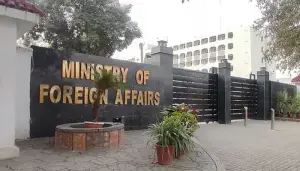

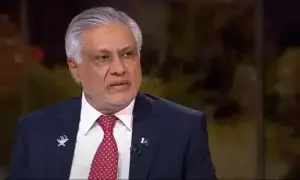
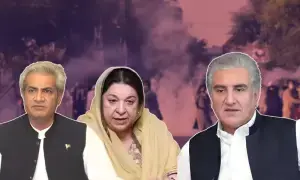



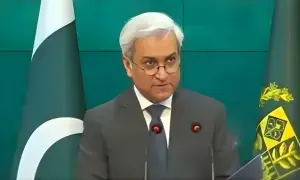



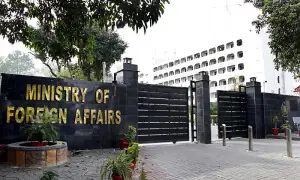

Comments are closed on this story.